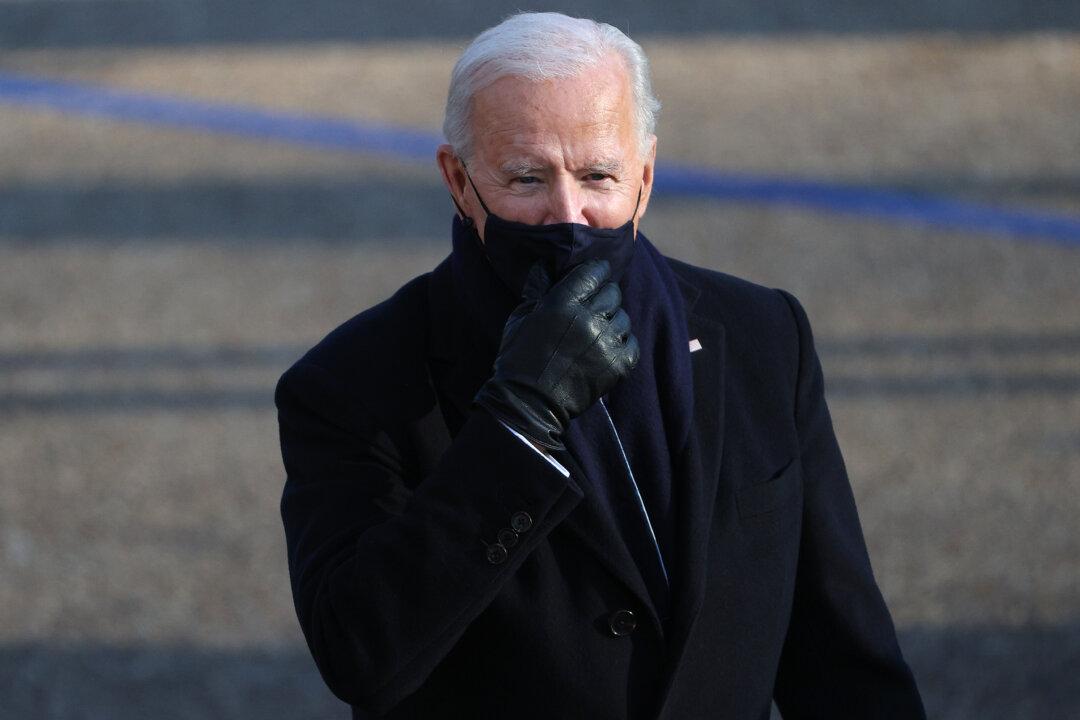President Joe Biden on his first day in office took a total of 17 executive actions, including to mandate masks and having the United States rejoin the United Nations’ Paris Climate Accord.
The new president is mandating social distancing and the wearing of masks on federal property in a new executive order. He also launched a “100 Days Masking Challenge” to compel all Americans to wear a mask for the first 100 days of his administration, in efforts to prevent the spread of the CCP (Chinese Communist Party) virus, which causes the disease COVID-19.




